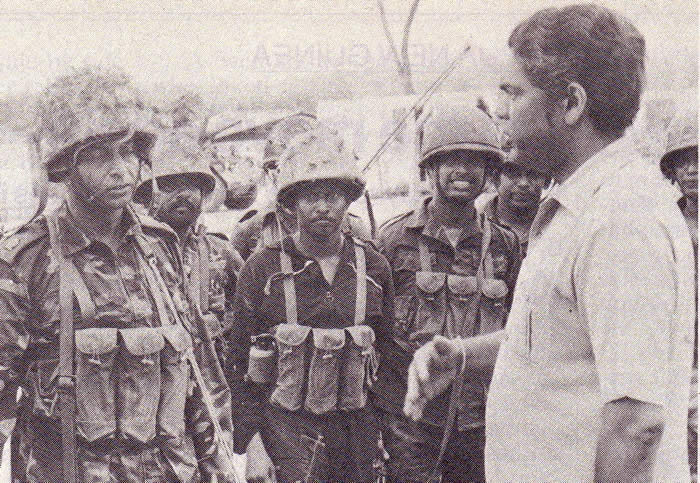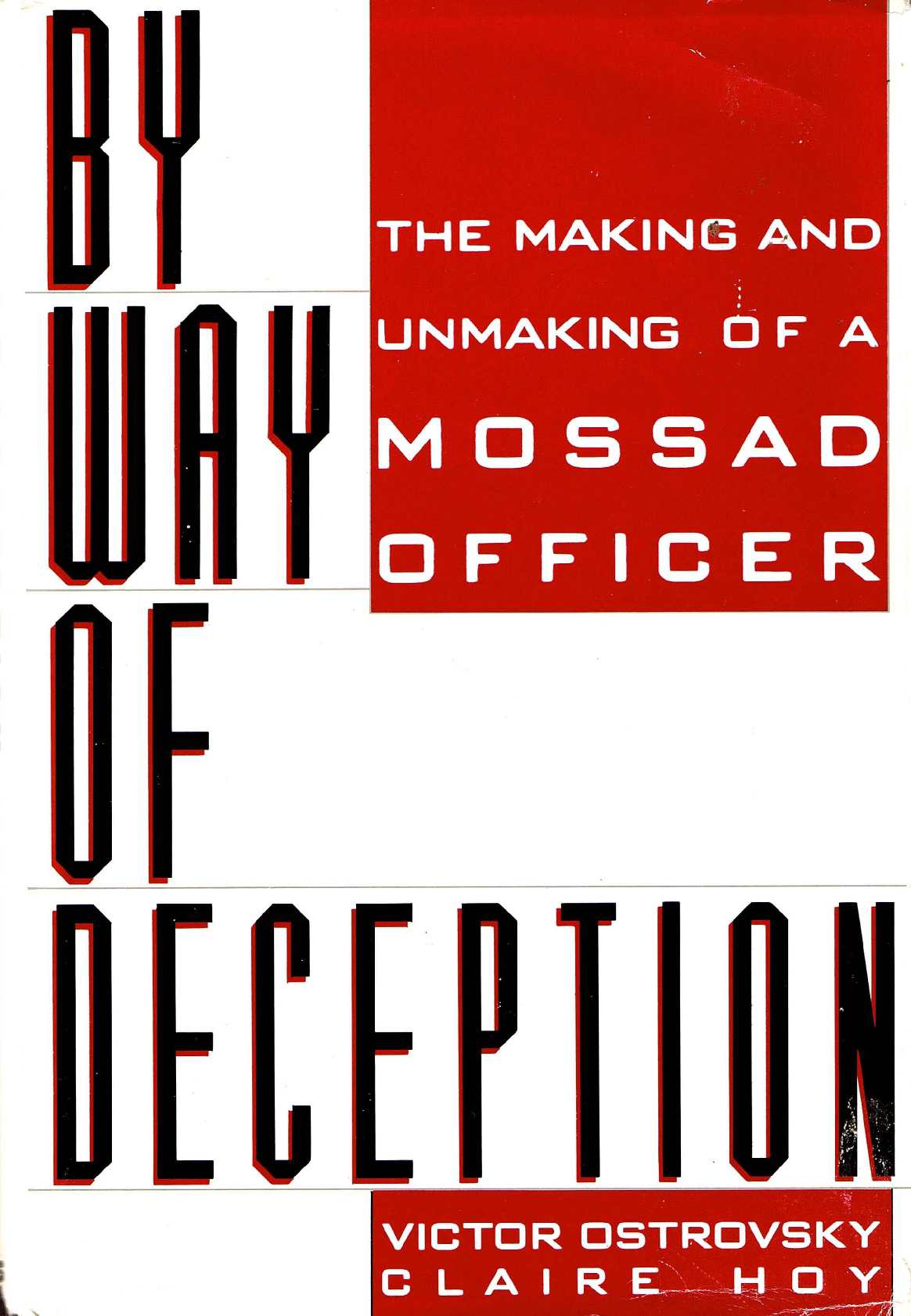
Factum Perspective: When a book by a Mossad Officer led to a Commission of Inquiry in Sri Lanka
By Chandani Kirinde
While successive Sri Lankan governments have recognised the right of the Palestinian people to independent statehood, based on relevant United Nations resolutions, its relations with the State of Israel have been less than consistent.
Sri Lanka established diplomatic ties with Israel in 2000, but relations between the two have historically vacillated depending on who holds power in Sri Lanka. While the island’s first Prime Minister D.S. Senanayake saw potential in such ties, under S. W. R. D. Bandaranaike and Sirimavo Bandaranaike relations with Israel cooled, as Sri Lanka embraced nonalignment and championed the cause of Palestine and the Arab world.
The J. R. Jayewardene government, which took office in 1977, allowed the setting up of an Israeli Interest Section (IIS) in Colombo in 1984. Jayawardene’s motives in setting up the IIS had a lot to do with the growth in militancy among Tamil groups waging a separatist war in the North and East. Israel both trained Sri Lankan military personnel and sold weapons to Sri Lanka at a time when the government was battling growing militancy.
But the increasingly cozy relationship between the two countries turned sour after Jayawardene’s successor Ranasinghe Premadasa was elected President in 1988. He closed down the IIS in 1990 and cut ties with Israel.
However, that did not end Premadasa’s chapter with Israel. The publication of a book titled By Way of Deception: The Making and Unmaking of a Mossad Officer by a former field intelligence officer in the Israeli intelligence service, Victor Ostrovsky, in 1990, and its many references to Sri Lanka, prompted Premadasa to appoint a Commission of Inquiry to look into the allegations contained in the publication.
Some of these allegations were serious, others ludicrous. The book included claims that while Israel supplied substantial amounts of military equipment to Sri Lanka and trained its personnel, the country was also providing weapons and training Tamil militants. This was done with neither side knowing about the other’s doing. It cited a case where Israel had sold several PT boats for coastal patrol to Sri Lanka and at the same time supplied Tamil militants with anti-PT boat equipment to use in fighting government forces.

The book moreover stated that Sri Lanka military personnel had been trained at Israeli military bases on anti-terrorist tactics with the agreement that in turn Sri Lanka would buy Israeli weapons including Uzi guns, bulletproof vests, and special grenades. Among the equipment purchased were seven or eight large PT boats (Devora).
The book contained allegations that Israel helped Sri Lanka cheat the World Bank and other investors out of millions of dollars to pay for the arms they were buying from Israel by faking a feasibility report for a project in the Mahaweli Development Project area.
There was also the rather ludicrous claim that the author himself had been assigned to a team of visiting high ranking Sri Lankan military officers who had been looking to evaluate radar equipment for purchase, and that the visitors had been shown a large vacuum cleaner system instead of actual radar equipment to deceive them.
President Premadasa picked Solicitor General S. W. B. Wadugodapitiya, later Supreme Court Judge, as the Head of the Commission of Inquiry. The Commission recorded statements from nearly 100 witnesses, including Ostrovsky and World Bank officials. Top defence sector and military officers; Lalith Athulathmudali, who served as National Security Minister when the incidents allegedly took place; and Ravi Jayewardene, the son of President Jayewardene who reportedly had close links with Israel, were among the other witnesses.
Ostrovsky disclosed in his book that he had accompanied Penny Jayewardene, wife of Ravi Jayawardene, when she visited Israel. During the visit, he added, he had taken her to visit many of the Christian holy sites and other places of interest in the country. She too gave evidence before the Commission.
Wadugodapitiya visited Canada to interview Ostrovsky. On the way he made a stopover in London where he interviewed the then Sri Lanka High Commissioner to the UK Sepala Attygalle, who had served as Defence Secretary under Jayewardene. However, after nearly a yearlong investigation, the Commission concluded that most allegations in the book could not be substantiated, though some its findings were interesting.
In Ostrovsky’s evidence to the Commission, he maintained that both members of the Sri Lanka armed forces as well as Tamil groups were trained by Israel, but the Commission concluded there was no evidence suggesting any Tamil terrorists had ever been trained in Israel, nor members of the Sri Lanka Security Forces had been trained in Israel during the period mentioned by Ostrovsky, that is around July 1985. The Commission also stated that there was no evidence Israel sold weapons to Sri Lankan militant groups.
Regarding the claim that the team of senior military officers who visited Israel to evaluate radar equipment for purchase had been deceived by the Israelis, the Commission found that while a team had visited a radar manufacturer as claimed by the author, there was no real evidence the Sri Lankan team had been deceived. The Commissioner stated that the team members were not shown any vacuum cleaner or radar equipment but instead were shown some unintelligible schematic drawings with Hebrew letters on them. The report stated that it did not recommend the purchase of radar equipment from the manufacturer.
With regard to the claim that Israel had helped Sri Lanka cheat the World Bank and other investors out of millions of dollars to pay for arms purchases by faking a feasibility report at the Mahaweli Development Project Area, the Commission found that two Israeli experts had visited Sri Lanka and made a report for an experimental farm in the Mahaweli “C” system, but funding for it did not involve the World Bank. The European Economic Community had been approached for the funds, but the project had not got off the ground.
Interestingly enough, the Commission could not trace any records relating to the arrival in Sri Lanka of these two Israeli experts, as the Department of Immigration and Emigration did not possess any record of their arrival.
One disturbing fact that came to light during the hearing was that in 1986 Sri Lanka had purchased a consignment of used weapons from Israel upon the recommendation of the Tender Board of the Ministry of Defence. The purchase of used weapons had been opposed by then Army Commander General Nalin Seneviratne, but due to Defence Ministry orders, there had been no way to stop it.
Instead, as a precautionary measure, Seneviratne had sent an army officer, a weapons expert, to Israel to inspect the consignment. On arrival in Israel, the officer had found that the consignment was already packed in containers and was about to be shipped. The Israeli personnel had not been happy about the inspection and had not been very uncooperative. However, the Sri Lankan officer managed to inspect the consignment as best as he could and found that some of the weapons were in fact defective.
The Commissioner recommended that used weapons should never be purchased for the armed forces in the future. The harm that may have befallen Sri Lankan soldiers due to the purchase of these weapons will, of course, never be known.
Whatever the ramifications of the Commission may have been, Sri Lanka’s relations with Israel have remained predictable since then. Relations stabilized after the restoration of diplomatic relations in 2000. At present thousands of Sri Lankan workers are employed there while there is bilateral cooperation in areas such as agriculture between the countries. Sri Lanka has managed to walk the tightrope in ties between Israel and Palestine, and maintains cordial relations with both countries at present.
Chandani Kirinde is a senior political and history columnist and a long-serving parliamentary correspondent in Sri Lanka. She can be reached via chandani.kirinde2016@gmail.com.
Factum is an Asia Pacific-focused think tank on International Relations, Tech Cooperation, and Strategic Communications accessible via www.factum.lk.
The views expressed here are the author’s own and do not necessarily reflect the organization’s.

